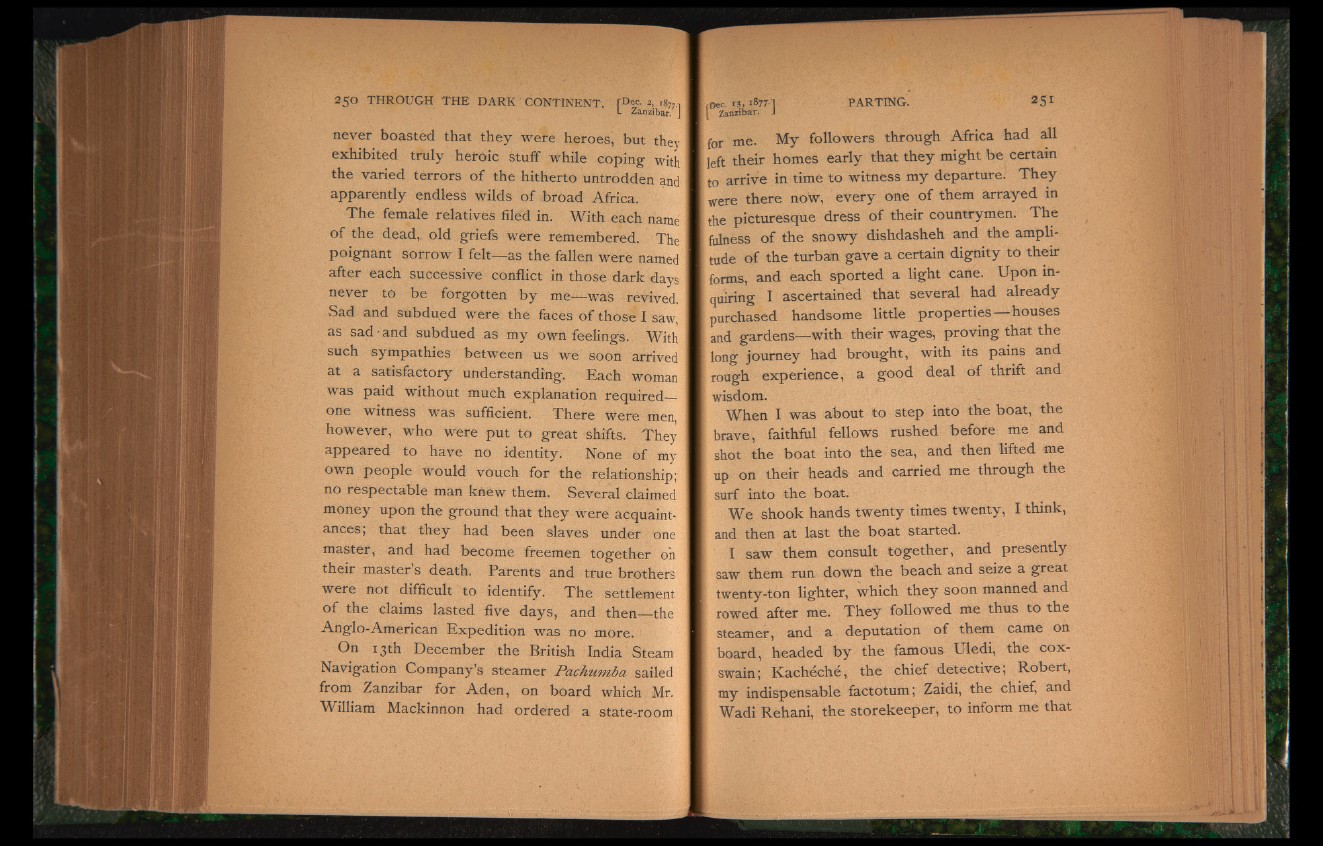
never boasted that they were heroes, but they
exhibited truly heroic stuff while coping with
the varied terrors of the hitherto untrodden and
apparently endless wilds of broad Africa.
The female relatives filed in. With each name
of the dead, old griefs were remembered. The
poignant sorrow I felt— as the fallen were named
after each successive conflict in those dark days
never to be forgotten by me— was revived.
Sad and subdued were the faces of those I saw,
as sad and subdued as my own feelings. With
such sympathies between us we soon arrived
at a satisfactory understanding. Each woman
was paid without much explanation required-
one witness was sufficient. There were men
however, who were put to great shifts. They
appeared to have no identity. None of my
own people would vouch for the relationship;
no respectable man knew them. Several claimed
money upon the ground that they were acquaintances,
that they had been slaves under one
master, and had become freemen together oh
their masters death. Parents and true brothers
were not difficult to identify. The settlement
of the claims lasted five days, and then— the
Anglo-American Expedition was no more.
On 13th December the British India Steam
Navigation Company s steamer Pctchumba sailed
from Zanzibar for Aden, on board which Mr.
William Mackinnon had ordered a state-room
for me. My followers through Africa had all
left their homes early that they might be certain
to arrive in time to witness my departure. They
were there now, every one of them arrayed in
the picturesque dress of their countrymen. The
fulness of the snowy dishdasheh and the amplitude
of the turban gave a certain dignity to their
forms, and each sported a light cane. Upon inquiring
I ascertained that several had already
purchased handsome little properties— houses
and gardens— with their wages, proving that the
long journey had brought, with its pains and
rough experience, a good deal of thrift and
wisdom.
When I was about to step into the boat, the
brave, faithful fellows rushed before me and
shot the boat into the sea, and then lifted me
up on their heads and carried me through the
surf into the boat.
We shook hands twenty times twenty, I think,
and then at last the boat started.
I saw them consult together, and presently
saw them run down the beach and seize a great
twenty-ton lighter, which they soon manned and
rowed after me. They followed me thus to the
steamer, and a deputation of them came on
board, headed by the famous Uledi, the coxswain;
Kacheche, the chief detective; Robert,
my indispensable factotum; Zaidi, the chief, and
Wadi Rehani, the storekeeper, to inform me that